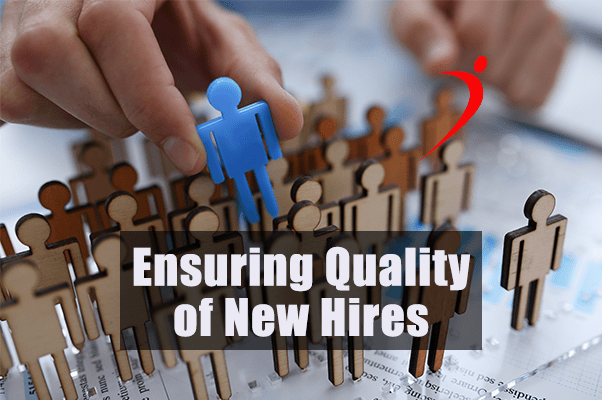
Filling positions quickly without assessing the quality or suitability of the person you’re hiring can cause problems and will cost your company significantly over the long term. Quickly filling positions without assessing the quality of the candidates could be sabotaging your efforts, resulting in:
- Greater Cost Over Time—Low-quality hires tend to have higher turnover rates, meaning you’ll be spending more recruiting dollars and more training dollars to keep that position filled long-term.
- Poor Retention Rates—People who aren’t suited for a particular position won’t stick around long. Whether you’re hiring someone who doesn’t have the skills needed for the job or someone who is “settling” for a position he or she isn’t invested in, you’ll experience problems with retention if you don’t seek out a high-quality candidate up-front.
- Low Productivity—Poor retention rates lead to lower productivity, both because the employee doesn’t display strong loyalty to the company and because of the time the position remains unfilled between hires.
How an RPO Provider Can Help You Ensure High-Quality Hires
Recruitment process outsourcing (RPO) solves each of these problems by helping you hire the right person in the first place. An intelligent approach to hiring helps reduce long-term recruiting costs, increase the percentage of employees who remain loyal to the company, and increase productivity by securing employees who are invested in both the company and the position. To achieve these results, RPO uses:
- Better Quality Data
An RPO provider can use key metrics, talent identification, and evaluation to ensure high-quality hiring processes. Accurate data and assessment prevents placing your sole reliance on opinion or gut feelings. While personal interaction is a key part of assessing an individual candidate’s fit for your team, a reliable data gathering process can help narrow down the field of possible candidates so you’re only interviewing the ones who demonstrate the primary qualities you’re looking for. - Targeted Candidate Selection
One of the goals of intelligent RPO is to use better methods to target the candidates who are most likely to possess the qualities you’re looking for. By narrowing the field, RPO conserves resources and makes the interview process more manageable for you. - Performance Metrics
RPO gives you access to performance metrics that will monitor the processes, communication, and management of changes inherent in the hiring endeavor. Metrics give you a better way to assess both the quality of the candidates and the quality of the hiring process itself.
One Final Measure
It’s easy to overlook quality problems when you’re looking only at data. Counter this tendency by taking the time to get the opinions of your hiring managers and those on the front lines who will be working with the new candidates. Filling a position quickly and at low cost isn’t always the best measure of success. Rather, you should evaluate how each new employee fits within the structure and environment of the company as a whole. By integrating that information with the data you’re collecting from the metrics you’ve put in place, you can more accurately determine the ultimate success and quality of each new hire.

